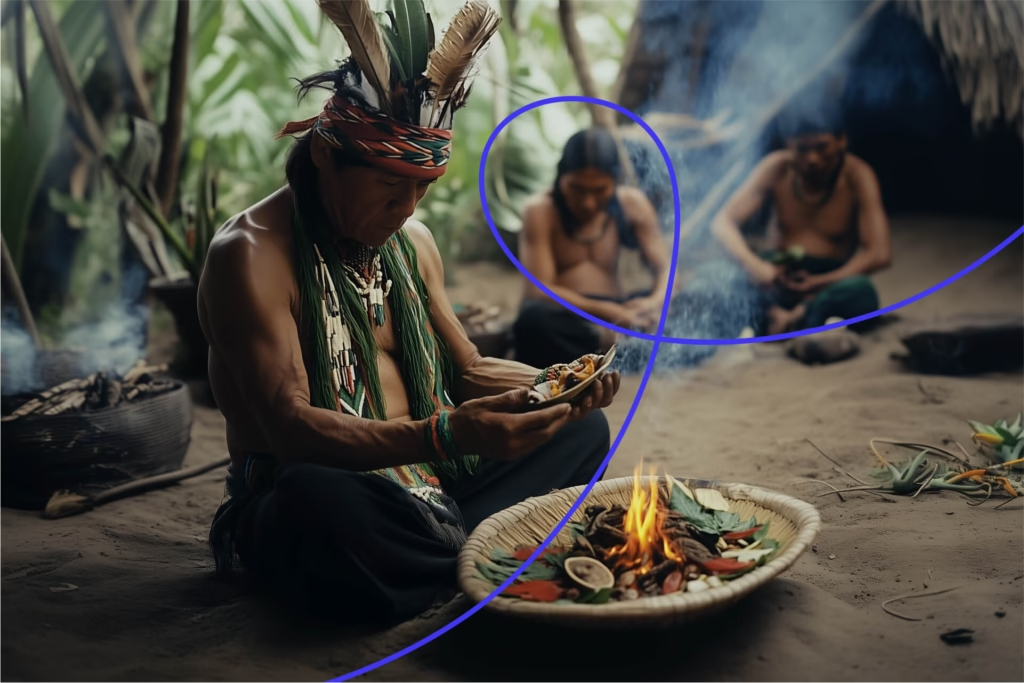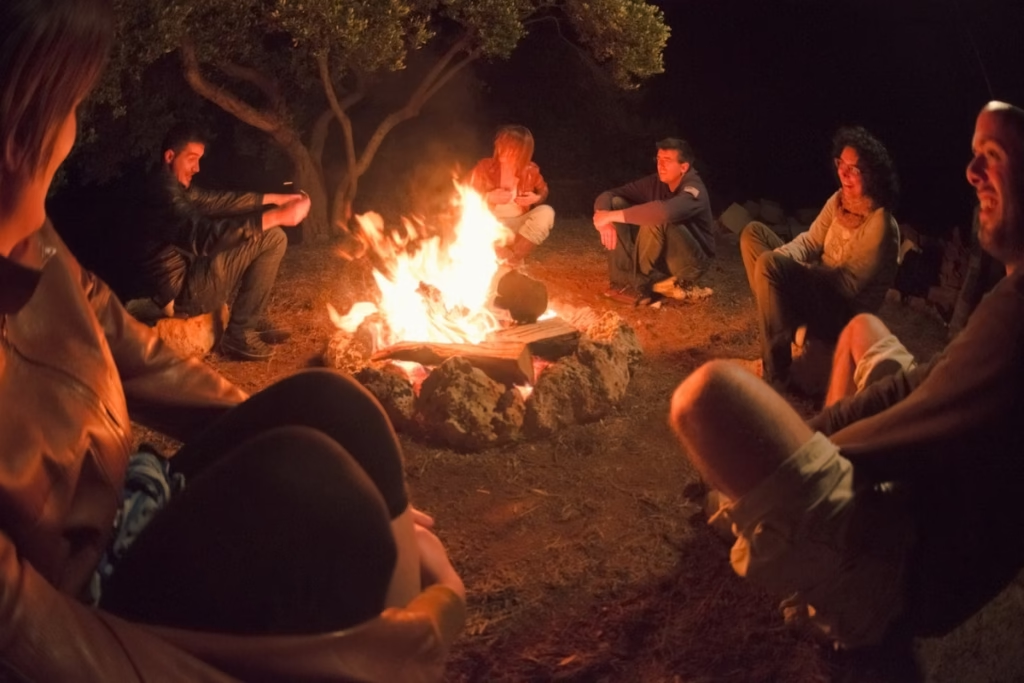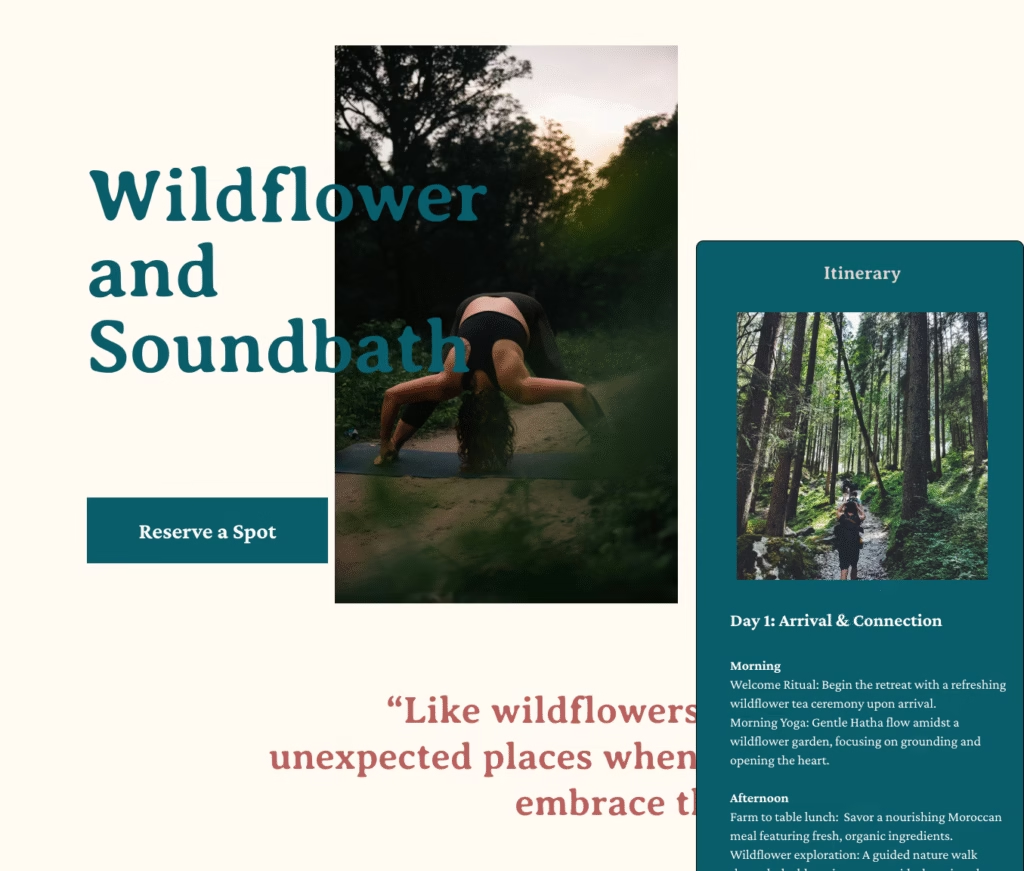Hosting an Ayahuasca retreat can be a deeply meaningful experience—not just for those who join, but for you as the one holding space.
Ayahuasca has long been a sacred part of Indigenous healing traditions, known for its powerful ability to bring clarity, healing, and transformation.
Today, many seekers travel to places like Peru, Costa Rica, and Brazil, where experienced shamans guide ceremonies with great care—and where participants often follow preparation practices like special diets to ensure safety and respect for the process.
If you’re a yoga teacher or wellness facilitator thinking of offering an Ayahuasca retreat, it’s important to go gently but thoroughly. The legal, ethical, and cultural considerations that come with this kind of work are essential—because even with the best of intentions, it’s possible to cause harm if you’re not fully informed.
Honoring the cultural lineage of Ayahuasca isn’t just a nice-to-have—it’s part of your responsibility as a retreat host.
That includes fair compensation, thoughtful collaboration, and a real commitment to preserving the integrity of traditions that have been protected and passed down for generations.
It’s just as important to know the legal standing of Ayahuasca where you plan to host, to work with experienced and qualified facilitators, and to set strong safety protocols in place—for the well-being of everyone involved.
This guide was written to support you with all of that. Whether you’re just beginning to explore this path or already preparing your retreat, it will help you move forward with respect, clarity, and care.
What Is an Ayahuasca Retreat?

An Ayahuasca Retreat is a unique wellness experience centered on the ceremonial use of ayahuasca, a plant medicine traditionally used by Indigenous Amazonian cultures.
Participants consume the ayahuasca brew under the guidance of experienced shamans or facilitators, often in a structured, sacred setting. The goal is to facilitate profound introspection, emotional healing, and spiritual awakening.
Compared to silent retreats or yoga-focused retreats, Ayahuasca Retreats are distinct because of their reliance on psychoactive substances. They often incorporate meditation, breathwork, and integration sessions to help participants process their experiences.
Guidelines for Hosting an Ayahuasca Retreat
Hosting an ayahuasca retreat is a profound responsibility that requires deep respect for the cultural and spiritual traditions surrounding this sacred plant medicine.
Indigenous communities have used ayahuasca for centuries as a healing and spiritual practice, and their knowledge serves as the cornerstone for its safe and respectful use. Ayahuasca is not a recreational substance; it is considered a medicine and should only be used under the guidance of experienced healers who are well-versed in its traditions.
If you are considering hosting an ayahuasca retreat, here are essential legal and ethical guidelines to follow:
- Research Local Laws
The legality of ayahuasca varies greatly depending on your location. In some countries, it is classified as an illegal substance due to its psychoactive component, DMT. Ensure you fully understand local regulations before organizing a retreat. - Licensing and Documentation
If you’re hosting in a region where ayahuasca is legal, determine whether you need specific permits. Many countries require retreats to be led by licensed professionals or Indigenous healers recognized by local authorities. - Participant Safety Protocols
Develop clear medical and psychological screening processes to ensure participants are fit to undergo the experience. Having liability waivers, consent forms, medical staff on standby, and emergency plans in place is non-negotiable. - Work with Experts: Partner with local shamans or facilitators who have deep experience with ayahuasca ceremonies. Their knowledge ensures safe and respectful practices.
Ethical Guidelines for Hosting an Ayahuasca Retreats
- Cultural Sensitivity
- Respect the traditions of Indigenous communities that pioneered the use of ayahuasca.
- Work with trained shamans or facilitators who are well-versed in these traditions, and avoid commercialization that diminishes the sacredness of the practice.
- Participant Safety
- Screen participants for physical and mental health conditions.
- Have medical personnel on standby.
- Limit group sizes to ensure individualized attention and safety.
- Qualified Leadership
- Only trained facilitators or shamans should lead ceremonies.
- They must have the skills to handle potential challenges during the experience.
- Transparency
- Clearly communicate what participants can expect, including potential challenges.
- Be honest about the nature of the experience, and avoid making exaggerated claims about healing or enlightenment.
- Post-Retreat Integration
- Post-retreat integration is as crucial as the ceremony itself.
- Offer follow-up resources like counseling, group discussions, or yoga practices to help participants assimilate their experiences.
Building trust with your clients starts with the right messaging. Personalize your retreat communication now.

What to Watch Out For When Hosting an Ayahuasca Retreat
Hosting an Ayahuasca retreat comes with unique challenges that require serious attention. As the retreat host, you need to be prepared to handle potential issues to ensure the safety and well-being of your participants. Here are key warnings to keep in mind:
Health and Safety Risks

Ayahuasca is a powerful psychoactive substance that can cause intense psychological effects like anxiety, paranoia, and hallucinations, as well as physical reactions such as nausea, vomiting, or increased heart rate.
For participants with preexisting mental health conditions or those taking certain medications, these risks can become life-threatening.
As a host, it’s your responsibility to thoroughly screen participants and recommend consulting a healthcare professional before joining the retreat.
Ensure you have trained facilitators on hand to address emergencies and that safety protocols are in place.
Navigating Legal Complexities
Legal risks are significant and vary by country.
Hosting a retreat without a clear understanding of the local laws surrounding Ayahuasca could result in severe legal consequences. Research the legal status in your chosen location, obtain the necessary permissions, and work only with licensed or qualified shamans to avoid jeopardizing your retreat.
Managing Participant Expectations
It’s tempting to highlight the life-changing potential of Ayahuasca, but overpromising results can backfire.
Not every participant will have a transformative experience, and for some, the process may be emotionally challenging or unsettling. Be transparent about the realities of the experience, including its potential difficulties, to ensure participants come prepared with realistic expectations.
The Importance of Integration
The work doesn’t end when the ceremony does.
Many participants struggle to process or make sense of their experiences without proper guidance.
Failing to provide integration support can leave participants feeling disoriented or even destabilized. Offer follow-up resources, such as group discussions, one-on-one coaching, or recommended practices, to help participants incorporate their insights into daily life.
By taking these warnings seriously and preparing accordingly, you’ll not only create a safer environment but also foster trust and ensure your retreat is a genuinely transformative experience for all involved.
Tips for Marketing Your Ayahuasca Retreats

Now that you know the ins and outs of Ayahuasca retreats—how do you start hosting one?
Attracting participants begins with thoughtful marketing that highlights the transformative nature of your retreat while building trust and educating your audience. Here’s how to get started:
- Showcase the Transformative Power
Your retreat isn’t just an event—it’s a life-changing journey.
Share compelling testimonials and personal stories to illustrate how it fosters deep healing and growth. Authentic stories resonate and inspire trust.
- Educate Your Audience
Many people are curious but may have misconceptions about Ayahuasca.
Use blogs, videos, and social media to explain what the retreat involves, address common concerns, and share preparation tips. Informed participants are more likely to commit.
- Find Your Audience in Wellness Communities
Reach people who are already seeking transformative experiences.
Market your retreat on yoga networks, spirituality-focused platforms, or personal development social media groups where your ideal participants gather.
- Create a Professional Online Presence
Your website is often the first impression potential participants have — and for something as sensitive and powerful as an Ayahuasca retreat, trust and clarity are everything.
Make sure your site reflects your retreat’s credibility and integrity, with clear details about the ceremony, preparation requirements (like dietary restrictions), facilitator qualifications, and integration support.
An intuitive booking process, mobile-friendly design, and calming visual layout all help participants feel safe and informed from the start.
With TheFlowOps, you can:
- Build a beautiful, custom-branded website without needing a developer
- Add scheduling and payment widgets to streamline bookings and deposits
- Clearly communicate preparation guidelines and safety protocols
- Highlight your facilitators’ experience and ethical approach
- Showcase retreat dates, locations, and availability in real time
- Automate follow-up emails for preparation and post-retreat integration
Need help getting started? TheFlowOps can help you create a customized retreat site tailored to your vision.
- Collaborate with Experienced Teachers and Influencers
Consider teaming up with yoga teachers or wellness professionals who have experience hosting Ayahuasca retreats.
Their insights and expertise can be invaluable in navigating the complexities of organizing a retreat, while their endorsement can help build credibility. Additionally, partnering with wellness influencers or past participants who resonate with your retreat’s message can amplify your reach and connect you with a broader, more engaged audience.
Seamlessly market your classes with TheFlowOps or grab our free Retreat Marketing Plan Template.

How TheFlowOps Can Help
Planning a retreat—especially one as complex as an Ayahuasca Retreat—can be overwhelming.
At TheFlowOps, we specialize in creating booking forms, retreat websites, and tailored marketing strategies to streamline your planning process and attract the right audience.
From yoga retreats to plant medicine journeys, we’ll help you build a professional online presence that reflects your unique offerings.
Start planning your retreat today! For more insights, check out our guide: Yoga Retreat Planning 101.
Final Thoughts
Hosting an Ayahuasca retreat can be a profoundly rewarding experience, offering participants the potential for deep healing and transformation.
However, it also demands a serious commitment to legal, ethical, and safety responsibilities. By honoring indigenous traditions, prioritizing participant safety, and adhering to local regulations, you can create an experience that is both meaningful and responsible.
Success begins with thoughtful planning, transparent communication, and a strong focus on integration support to help participants process their experiences. These elements are crucial for fostering a retreat that is safe, ethical, and impactful.
With the right approach, you can guide participants on a truly transformative journey while preserving the sacred traditions of Ayahuasca.
By taking these responsibilities seriously and following best practices, you’ll not only ensure the success of your retreat but also contribute to the growth of an ethical and sustainable Ayahuasca community.
Hosting a transformational ayahuasca retreat? Or maybe you’re considering creating a couple’s retreat or women’s retreat? Build your custom retreat website today to ensure every detail aligns with your values and supports your participants.




